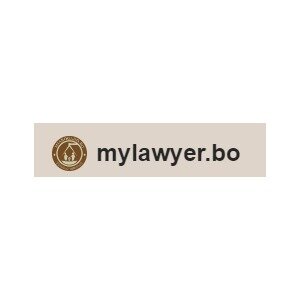Best Drunk Driving Lawyers in Bolivia
Share your needs with us, get contacted by law firms.
Free. Takes 2 min.
Or refine your search by selecting a city:
List of the best lawyers in Bolivia
About Drunk Driving Law in Bolivia
Drunk driving is a serious offense in Bolivia, governed by stringent laws to ensure public safety. The legal blood alcohol concentration (BAC) limit for drivers is 0.05%. The Bolivian authorities have implemented strict penalties for those caught driving under the influence (DUI) to deter this dangerous behavior and protect all road users.
Why You May Need a Lawyer
Facing a DUI charge can be complicated and intimidating. A lawyer can help navigate the legal process, potentially reduce penalties, and represent you in court. Common situations where legal assistance may be required include contesting breathalyzer results, a need for plea bargaining, or facing additional charges related to DUI, such as reckless driving or causing an accident while under the influence.
Local Laws Overview
Bolivian law defines DUI as operating a vehicle with a BAC above the legal limit. Penalties for drunk driving can include fines, license suspension, imprisonment, and mandatory educational or rehabilitation programs. Penalties may increase if an accident occurs or if there are repeat offenses. Enforcement is typically carried out through roadside checks and sobriety tests administered by law enforcement officers.
Frequently Asked Questions
What is the legal BAC limit in Bolivia?
The legal BAC limit in Bolivia is 0.05% for drivers. Exceeding this limit can result in DUI charges.
What are the penalties for a first-time DUI offense?
First-time offenders might face fines, license suspension, and mandatory attendance at education programs. In some cases, jail time might be imposed, especially if aggravating factors are present.
Can I refuse a breathalyzer test?
Refusing a breathalyzer can have serious consequences, including immediate license suspension and possible arrest. It might also be considered an admission of guilt.
What happens if I cause an accident while driving under the influence?
If an accident is caused while under the influence, the penalties can be significantly more severe, potentially including extended jail time, heavy fines, and loss of driving privileges.
Are there any diversion programs for DUI offenders in Bolivia?
Yes, some jurisdictions offer educational and rehabilitation programs as part of the sentencing or as an alternative to harsher penalties, especially for first-time offenders.
How long does a DUI conviction stay on my record?
A DUI conviction can remain on your record for many years, which can impact your ability to drive legally and affect employment and insurance rates.
Can a DUI charge be expunged from my record?
The possibility of expungement depends on the severity of the offense and the time elapsed since the conviction. Consulting with a lawyer can provide clarity regarding eligibility for expungement.
Will I lose my driver’s license immediately after being charged?
There can be administrative actions such as temporary suspension pending a court hearing. The specifics can vary based on the circumstances and local jurisdictional rules.
Can DUI charges be contested in court?
Yes, DUI charges can be contested, especially if there are questions about the validity of testing methods or violations of rights. Legal help is crucial in building a defense.
What should I do if I’m arrested for DUI?
Remain calm, comply with law enforcement, request legal assistance as soon as possible, and exercise your right to remain silent until your lawyer is present.
Additional Resources
For assistance regarding DUI charges in Bolivia, consider reaching out to local bar associations, legal aid societies, or contacting a lawyer specializing in DUI law. Governmental bodies like the national traffic agency may provide information on legal BAC limits and penalties. Community organizations focused on road safety might also offer useful support and guidance.
Next Steps
If you require legal assistance for a DUI or related issue in Bolivia, the first step is to contact a qualified attorney who specializes in DUI cases. They can provide immediate guidance and representation. Preparing all relevant documents, such as the police report and any testing results, and understanding your rights is also crucial in effectively managing the situation.
Lawzana helps you find the best lawyers and law firms in Bolivia through a curated and pre-screened list of qualified legal professionals. Our platform offers rankings and detailed profiles of attorneys and law firms, allowing you to compare based on practice areas, including Drunk Driving, experience, and client feedback.
Each profile includes a description of the firm's areas of practice, client reviews, team members and partners, year of establishment, spoken languages, office locations, contact information, social media presence, and any published articles or resources. Most firms on our platform speak English and are experienced in both local and international legal matters.
Get a quote from top-rated law firms in Bolivia — quickly, securely, and without unnecessary hassle.
Disclaimer:
The information provided on this page is for general informational purposes only and does not constitute legal advice. While we strive to ensure the accuracy and relevance of the content, legal information may change over time, and interpretations of the law can vary. You should always consult with a qualified legal professional for advice specific to your situation.
We disclaim all liability for actions taken or not taken based on the content of this page. If you believe any information is incorrect or outdated, please contact us, and we will review and update it where appropriate.
Browse drunk driving law firms by city in Bolivia
Refine your search by selecting a city.









